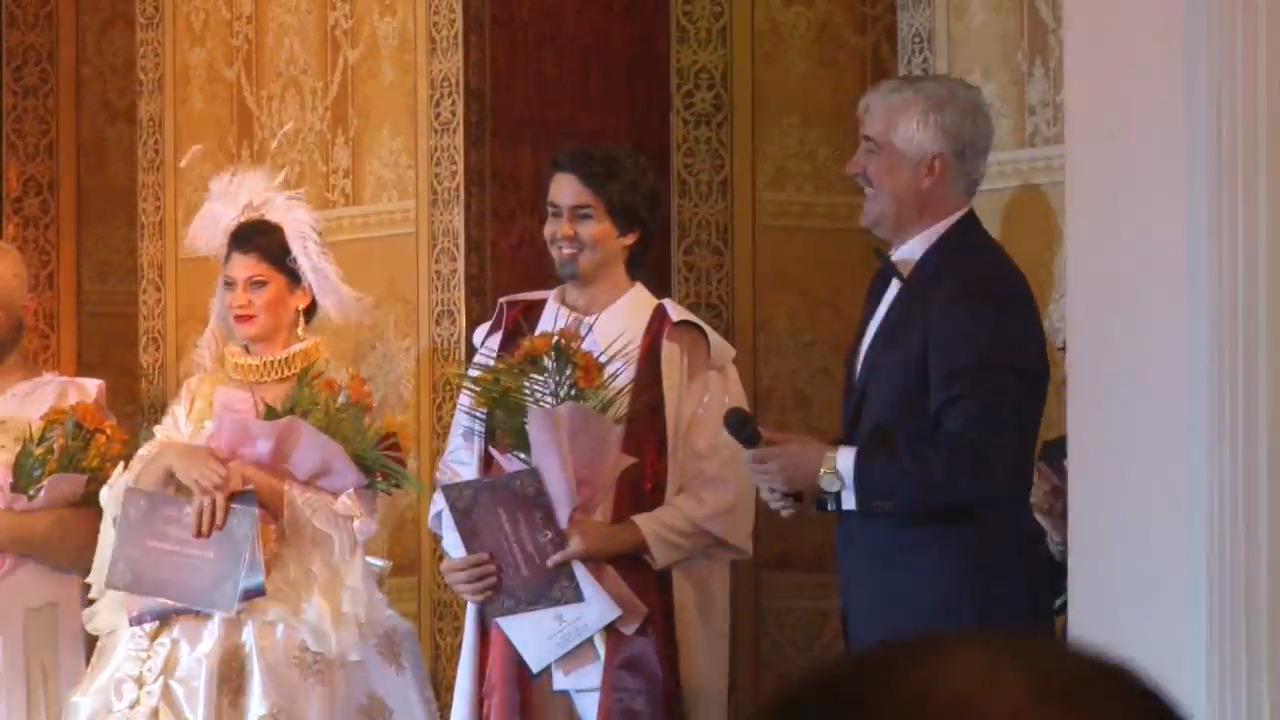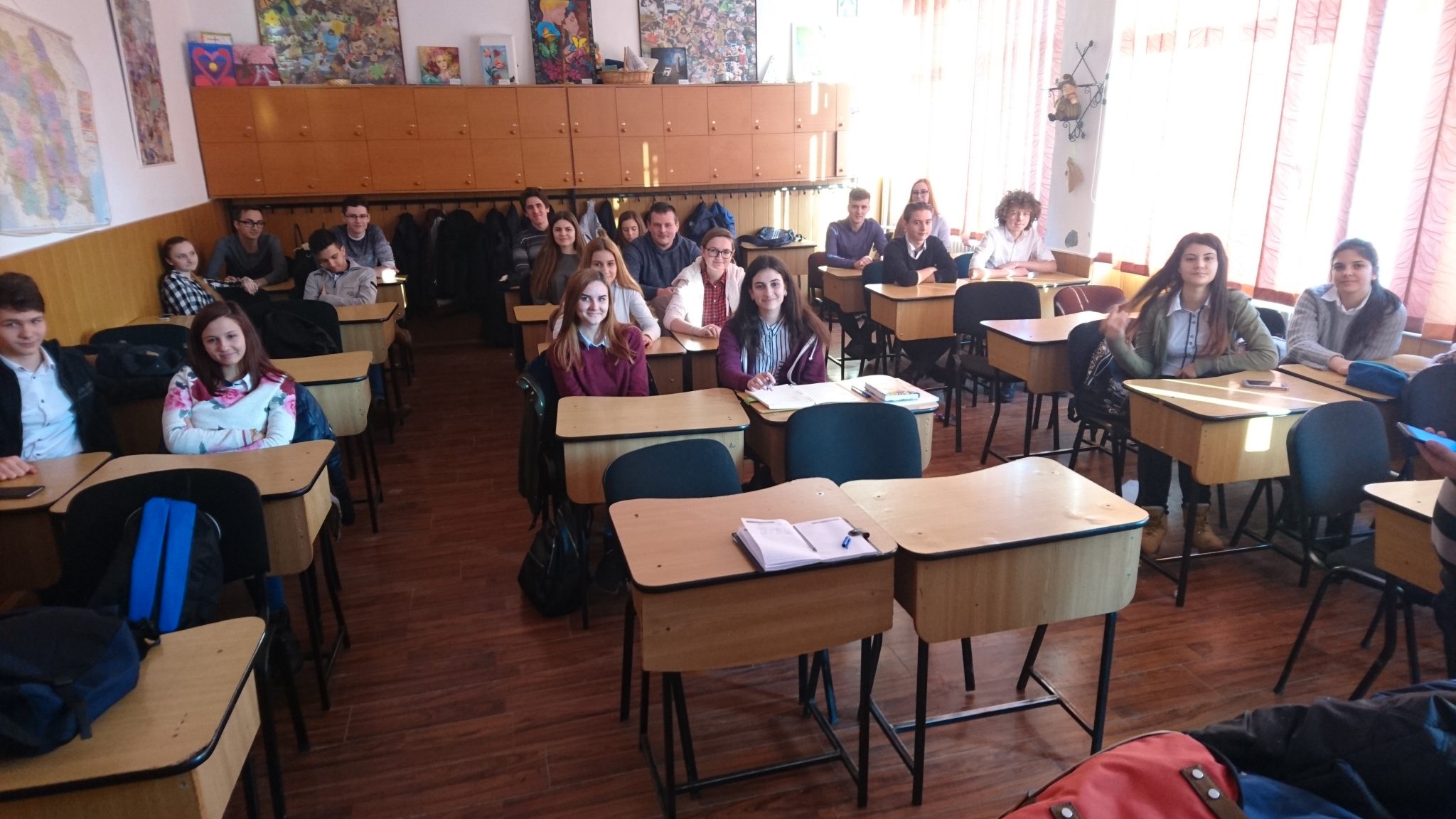The sensory theatre. New transnational strategies for theatre audience building in the frame of the ”Creative Europe” (SENSES)


Aim
The project meets a cultural deficiency in the public, who has currently no interest in this kind of show. In order to tackle this lack, it identifies specific and innovative strategies for the elaboration production and staging of theatre shows, as to create the public from a multi-sense. On the one hand, the project is aimed at the promotion and renewal of dramaturgical drafting and of libretto’s writing by creating a transnational collaboration between playwrights, theatre scholars and young people. It also sets its goal to determine a greater involvement of young people in the theatre through the educated employment of all the senses in performances' enjoyment. On the other hand, the staging shall be aimed at the immersion of the body of the public in the sensorial features of the event, with the specific activation of the different senses. Furthermore, each show shall be preceded by a theoretical introduction, and 12 out of 24 shows shall be staged in non-conventional venues (such as libraries, etc.), and shall be followed by ‘after-the-show' debates aimed at activating awareness in the public concerning aesthetic experience just enjoyed. This is how the sense restructuring envisaged by the theatrical experience may be achieved at its best.Full Description
The SENSES program: the sensory theatre ”New transnational strategies for the development of theatrical audience” co-funded by the European Union through the EACEA Executive Agency aims to create, through transnational co-production, three theatre performances aimed at improving the spectator’s sensory experience and activating an international observer on the theatrical use and production. The objective of the observer is to record the increase in the cultural value of the theatrical performance and its impact, especially on the young public in the age group 15-24. The survey commissioned in 2013 to Eurobarometer on the behaviour concerning cultural participation and production has showed that access to theatre have suffered from 2007 to 2013 a 4% decline from 32% to 28%. Notwithstanding the economic crisis, the main causes of such low attendance have been identified not properly in the ‘expenses’, but in a ‘lack of interest’, particularly prevalent among young people (15-24 aged). Some exception (for inst. Romania) may be listed, where also the ‘lack of choice’ or the ‘low quality of the activities’ are particularly relevant.
In order to activate interest in theatrical shows the project plans to adopt an innovative strategy of playwriting and staging based on the enhancing of the audience sensorial perception during the shows and on the critical awareness of the public on the same experience.
The partners have been selected among Theatres, Associations and Universities, coming from three EU countries: Italy, Romania and France. Expected results are: 1.innovative performances of them in three different countries; 2. Implementation of a transnational Observation-centre for the impact measurement of theatre on young people; 3. Guideline for the implementation of similar centres and other guided exploitation strategies.
The project has produced a show, performed 18 times (with more than 1.000 spectators) and currently still running at several Milan theatres (other six performances are foreseen during the current season). Several theoretical lessons have taken places in theatres and non-conventional venues before and after the performances. The SENSES project arises on the basis of these encouraging local results, adding to the senses involving transnational co-production and the implementation of the TEMPO Observation-centre.
Project partners:
- University “Dunarea de Jos” Galati, Romania – Project coordinator
- Universita degli studi de Milano, Italy
- Associazione Culturale ScenAperta-Altomilanese Teatri, Italy
- Universite d’Avignon et des Pays de Vaucluse, France
- Teatrul Muzical «Nae Leonard» Galati, Romania
Step by Step Explanation
-
1
The project involved two categories of activities:
a) the creation of theatre and opera performances in partnership between European actors, and
b) the building and measurement of young people’s participation in the European cultural act.
The creation of theatre and opera performances in partnership between European actors, and B.the building and measurement of young people’s participation in the European cultural act.
The program of SENSES Festival saw the performances of three productions: Solaris (P2), Les yeux fermés (Eyes shut, P5) and Il Re cervo (The King deer, P3).
Festivals brought to the stage 21 hours of shows –among which two world premières and six national premières –in 15 days of parallel schedule in Italian, French and Romanian theatres, as well as meeting and debates on the topics investigated by the project.
The production was carried out in different stages.
-
2
From 1/06/2016 to 30/11/2016 the Dramaturg and collaborator of ScenAperta (SCA)Fabrizio Sinisi worked on the script related to the dramaturgy developed in the activity n. 7.The show “Solaris” is freely inspired by the novel of “Solaris” by Stanisław Lem and by the homonymous film directed by Andrej Tarkovskij.This is basically the plot. Bringing this story to the stage means for SCA to reflect on the value of the reality of performance: What is “real” on the scene? And how much is it real? What is the nature of the mysterious “visitors” who appear to the astronauts in the space station? Are they less “real” than the other “real” characters for the spectators watching the performance? The whole development of the dramaturgy work revolves around this necessity of a contact with the Other, and around this mutual approach.
-
3
Based on these events, the second group of activities sought to create an observer center in order to support Theatre Consumption Experiences. In this respect was set up a quantitative and qualitative inquiry, as almost all of our workshop participants were not habitual theatre goers. They could rely on very few past experiences of theatrical performances, most of which were part of their school activities. The participants had not yet formed a personal taste and had no tools to orient themselves in choosing a theatre performance appropriate to their interests and needs.
-
4
For this reason, it was necessary to support their consumption experience during all the stages: from gathering the information on the theatrical offer to the formation of a conscious judgment on the experiences they made.
To this end, the university tutors supported the participants:
(a) by training them in finding the information of the theatrical offer (showing the most frequently used information channels, assisting them in finding tickets and offers designed for the young audience, explaining to them the peculiarity of the different theatres etc.);
b) by assisting their choices through advice based on the interests they expressed during the workshops ;
c) by giving introductory materials about the shows they had chosen to see;
d) by discussing the experiences made in order to positively direct the subsequent consumption choices. In the preliminary meetings we found that almost all the previous theatrical experiences of the participants were related to didactic activities proposed by the school.
-
5
Theatre consumption conveyed by schools was perceived by the majority of the participant as “school duty” and, accordingly, passively experienced (unlike other activities such as attending concerts or going to the cinema). To separate theatrical consumption from the idea of “school duty”, it was necessary to give extreme importance to their free choice. For this reason, they were not given a selection of theatre shows to be seen, but rather we accompanied their autonomous process of choice.
-
6
To enhance the pleasure related to theatrical consumption we built a setting, which encouraged a social consumption of theatrical events. We organised small groups of 3-4 participants, which were the core of their activity and became a platform for exchange, aimed at favouring a sharing of the knowledge and experiences between the single participants.
-
7
To support the development of an individual theatrical taste and to strengthen the awareness of it, each group had to prepare a final report on the basis of the documentation collected during their path of cultural experiences.
This activity also stimulates the creativity and the engagement of the participants. This information was also made available to the theatrical partners granting them insight, which could help them in developing formats suitable for a young audience.
7.The qualitative survey of the TEMPO addressed also the ways used by the young participants to communicate their experiences. This provided extensive information on the languages, tools and communication channels used by young people between the ages of 15 and 19. In so doing we promoted a direct encounter between the young participants and the leaders of the theatrical production of the city of Milan. This platform, on the one hand, allowed young participants to see their points of view and their needs recognized and, on the other hand, to offer to the theatrical partners the opportunity to establish a direct dialogue with the young audience.
The aim of TEMPO is to support the further development of this platform through new formats of meetings and collaboration.
All stages of the ‘critique’ workshop were monitored by the Senses scientific team. In this way key information was gathered for the refinement and design of new audience building activities while at the same time an in-depth analysis of the cultural consumption of the young participants was started.
This analysis was shared with the theatres and institutions that participated at the roundtable so that it could be exploited through the design of further audience building activities.
Results
Implemented Methods
The "critique" workshop
The “critique” workshop was thought as a platform to both encourage the attending of theatre performance and to support their reception and their understanding through specific training activities. The’critique’ workshop was attended by about 125 students from the schools involved in the work of the Pilot Observation-centre.
It was organized in 3-4 people groups. Students went through 64 hours of cultural activities from March to June 2016 under the supervision of university tutors. Each group was invited to autonomously plan an audience programme comprising at least four cultural and entertainment activities of their choice, one of which had to necessarily include a theatre show. Activities that could be chosen by students included, among others, playing video games, going to cinema, or attending sport events. As a result, young people were called to actively engage with cultural programmes and choose freely among different kind activities. The only requirements were: a) to document all the moments of their path, from their choices, to the actual consumption and evaluation of their cultural experiences; and b) to draft a full multimedia report describing the whole process. These reports were prepared during workshops supervised by university tutors and presented by the students during a two-day conference (June 28th-29th 2016) attended by the representatives of three important theatres of the city of Milan (i.e. Piccolo Teatro, Teatro i, Atir Teatro Ringhiera) together with the theatre partner of the project, ScenAperta Altomilanese teatri.
At the same time, we employed indirect strategies that oriented the participants toward the consumption of theatre: a) a survey on the role of theatre in the life of the participants was made explicit and discussed with the participants from the beginning of the activities; b) the university tutors offered a series of introductory presentations to facilitate their contact with theatre; and c) the university tutors discussed the current theatrical events with the participants in order to find a match for their interests.



